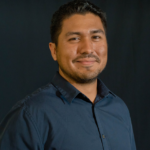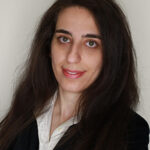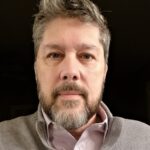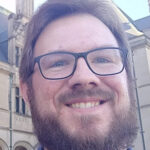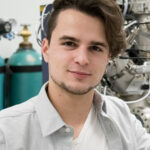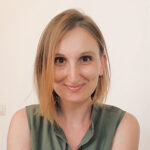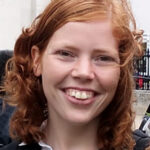ELEVATE Plenary Sessions
Plenary sessions, by definition, are intended to be complete, unreserved and inclusive to all. The ELEVATE program organizers are proud to offer multiple plenary scale sessions both during the conference proper and in advance of the event. These sessions are intended to promote emerging topics within our field and encourage open dialogue amongst our entire community.
Plenary Sessions Descriptions
DEI Panel Plenary Session
Date: Tuesday, October 25, 2022
Time: 12:45 p.m.
Location: Ballroom BC
Organizer: Ashleigh Francis, Applied Superconductivity Center, NHMFL, FSU
Event Description: The Applied Superconductivity Educational Foundation recognizes and is strongly committed to the significance and importance of Diversity, Equity and Inclusion. This year we have created an interactive DEI event featuring a panel of speakers to address the relevant topics brought forward from the superconducting community during our last event. These include: Unconscious bias; building awareness; achieving purposeful integration of this awareness into your professional practice; Communication and conflict management; engagement of members of your organization. We feel it is especially relevant to include in our discussion the influence of health, well-being and geo-political environment on diversity and inclusion. A pre-recorded talk will be released prior to the event to stimulate discussion and attendees will be given the opportunity to ask questions and interact directly with the in-person panel members. Click here for the introduction on DEI concerns in the Superconductivity community.
Our panelists for 2022 are:
|
Dr. Ernesto Bosque |
Ernesto Bosque is a Research Faculty member at the Applied Superconductivity Center at the National High Magnetic Field Lab (ASC-NHMFL). Following a B.S. in mechanical engineering from at the Florida State University, he continued at FSU to earn a PhD under Prof. S. Van Sciver at the NHMFL, experimentally investigating heat and mass transfer phenomena subsequent a catastrophic loss of the isolation vacuum around Helium-II systems. Transitioning from cryogenics, he began his superconducting magnet work under U. Trociewitz in the HTS Coils Group, focused on driving Bi-2212 high temperature superconductor technology into magnet technology. His postdoc focused on multiphysics finite element analysis on prototype coil designs to predict their operational performance limits and comparing the models with experimental results, which served as feedback to validate and improve the modeling effort. As Bi-2212 requires a heat treatment at high temperature and pressure, another focus became a deeper understanding of the heat treatment. He heads operation of a large, high-pressure furnace required for processing the wind-and-react Bi-2212 coils for the coil program at the ASC, as well as for collaborations with industry and the US Magnet Development Program, specifically with LBNL. Over the last few years he has also taken on a Technology Manager role for insulated REBCO efforts within the NHMFL 40T All Superconducting Magnet Project. With over a decade of his career at the lab, he has also served as the Diversity Chair of the NHMFL for several years. |
|
Dr. Tannaz Farrahi |
Tannaz Farrahi is a PREP Postdoctoral Fellow in Quantum Nanophotonic Group at the National Institute of Standard and Technology (NIST) and Department of Physics at the University of Colorado, Boulder where she conducts research in the novel design and nano/micro-fabrication of Quantum Detectors such as superconducting nanowire single photons detectors (SNSPDs) and transition edge sensors (TES), test and characterization. Tannaz received her Ph.D. in Electrical Engineering from the University of the Virginia where she was a doctoral Grote Reber fellow with the National Radio Astronomy Observatory (NRAO) from 2014-2017. Her doctoral dissertation titled “Development of Advanced Technologies for High Frequency Radio Astronomy Detectors” in part resulted in the realization of SIS mixers for the 2nd generation of Band-6 detectors of ALMA radio telescope in collaboration with NRAO. Tannaz’s research interests lie in the area of Quantum Hardware Engineering, Superconducting Electronics, Nanofabrication, and Material science. Dr. Farrahi has published more than 20 peer reviewed conference and journal articles and 4 book chapters. Tannaz has served as the technical coordinator of IEEE-IST conference from 2014-2020. She currently serves as an ASC 2022 electronics organizing committee and the innovation chair program of IEEE-IST 2022. |
|
Ricardo Donaton |
Ricardo Donaton is a Senior Technical Staff Member in the IBM Quantum team working on quantum processor development, fabrication and delivery for quantum systems deployment. He currently leads the effort of developing new interconnects and packaging fab processes for quantum computing applications, bringing them from research into development. He has extensive experience in materials and technology development from his work at IBM Quantum, IBM Semiconductor Research and Development Center and IMEC. During his career Ricardo has managed large and small teams of engineers and researchers from different nationalities and had the opportunity to go on an international assignment in France, acting as a technical lead for an emerging technology and also as project manager. This, combined with his Latino background – he was born and raised in São Paulo, Brasil - helped him to solidify a strong cross-cultural awareness. He is a member of the Hispanics@IBM community and a mentor in IBM. He received his Ph.D. in Physics from IMEC / Katholieke Universiteit Leuven, Belgium. |
Early Career Plenary Session
Date: Wednesday, October 26, 2022
Time: 9:00 a.m.
Location: Ballroom BC
Organizer: Luigi Muzzi, ENEA
Event Description: In the frame of the ELEVATE Program, for the purpose of promoting professional & leadership development, an Early Career Plenaries event has been organized at the 2022 Applied Superconductivity Conference. This event follows the line traced by successful Young Scientist Plenary events at past Applied Superconductivity and Magnet Technology conferences, offering to early career scientists that are contributing significantly to developments in applied superconductivity, the prestigious opportunity to illustrate with short plenary talks their achievements or vision for future directions in our field. The early career scientists will be selected among recommendations made by the Program Committee, to have demonstrated outstanding, significant potential in the field of superconductivity and have gained the recognition and interest of other scientists in the community. The organizing committee believes that this addition to the plenary sessions gives the entire applied superconductivity community exposure to the novel thoughts, approaches and unexplored paths that these early career scientists can deliver.
Early Career Plenary Speakers:
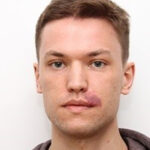
Simon Otten |
Simon Otten obtained a MSc in applied physics from Twente University in 2014. After that he worked at Karlsruhe Institute of Technology as a PhD student on the topic of REBCO Roebel cables. Since 2019, he is a postdoctoral researcher at Twente University and is involved in research for different applications of superconductors, including Nb3Sn accelerator magnets and HTS linear motors. Presentation title: Small-scale tests for improving training and mechanical performance of accelerator magnets |
|
Daniel Davis |
Dr. Daniel S. Davis has recently finished his Postdoc to start a Visiting Research Faculty position at the National High Magnetic Field Laboratory's Applied Superconductivity Center. There he continues his work on ultra-high-field HTS magnet technology, driven by a strong passion for HTS technology R&D and the desire for mentoring students. Beginning with his PhD thesis studies of quench management of Bi-2212 magnets (FSU-Physics-2019), he has balanced experimental, simulation, and analysis efforts, leveraging and strengthening collaborations with the high energy physics community, particularly with the US-DOE-MDP and CERN. During a six- month stay at the LBNL with Dr. Tengming Shen, which was made possible by a DOE- SCGSR grant that he was awarded, he developed HTS quench simulations together with Dr. Emmanuele Ravaioli using LEDET (now part of CERN's STEAM framework) for both UHF solenoids and HEP cable-wound dipoles to demonstrate a path to implementing Bi-2212 in full-scale industrial and accelerator magnets. His current work includes both HEP/fusion motivated cable-wound high field test solenoids of both Bi-2212 Rutherford cable and ReBCO CORC® as well as industry collaborations towards 25 T class compact research magnets and UHF NMR magnets beyond 30 T/1.2 GHz made with Bi-2212 round wire. Presentation title: High Field Coil Testing: Developing the full potential of HTS technology |
|
Daniel Bafia |
Daniel Bafia is an associate scientist at the superconducting quantum materials and systems center at Fermilab studying the origins of RF loss in materials used in the fabrication of 3-D resonators and superconducting qubits. In addition to his research, he currently serves as the cavity technical lead at Fermilab for the LCLS-II HE project. He obtained his PhD from Illinois Institute of Technology in 2020 where he focused on understanding the origins of loss in niobium superconducting radio-frequency cavities which won him first place at the IPAC’19 conference student poster competition. Presentation title: Niobium Valley: The Site of the World’s Next Superconducting Quantum Computer |
|
Laura Piperno |
Laura Piperno is a postoctoral fellow currently working on Iron-based superconductors (IBSCs) at ENEA, Italian National Agency for New Technologies, Energy and Sustainable Economic Development. Graduated in chemistry in 2016 with a thesis on chemical deposition of YBa2Cu3O7-x, she has been applying her skills to fusion-related projects ever since. Dr. Piperno received her Ph.D. in Applied Electronics from Roma Tre University, and kept collaborating with national and international institutions such as the aforementioned ENEA and Roma Tre University, the Italian National Research Council (CNR), the Barcelona Institute of Material Science (ICMAB), the Karlsruhe Institute of Technology (KIT) and the Technical University of Cluj-Napoca (TUCN). Her research led to the publication of about twenty peer reviewed journal articles and received several awards such as ESAS Young Researcher Awards, E-MRS Graduate Student Award and Park AFM Scholarship. In early 2022, she won the EUROfusion researcher grant with a project aimed at developing new low-cost, chemical methodologies for the integration of IBSCs in the state-of-the-art conductor technology. Presentation title: Low-cost coated conductors: chemical techniques for Iron-based materials |
|
Jasmin Congreve |
Jasmin Congreve is a postdoctoral researcher in the Bulk Superconductivity Group in the Department of Engineering at the University of Cambridge. Her recent work has focused on developing superconducting joints utilizing bulk (RE)BCO superconductors. She completed a PhD in 2019 in the same group. This focused on improving the mechanical properties of bulk YBCO, and developed a reliable fabrication route for YBCO-Ag single grains. Jasmin’s expertise is in the fabrication, joining and mechanical characterization of bulk (RE)BCO. Presentation title: High-performance joints in bulk superconductors: making them a reality |
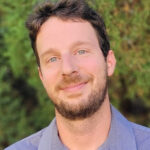
Joel Weber |
Joel Weber is a PREP Senior Research Associate in the Quantum Sensors Group at the National Institute of Standards and Technology (NIST) and the Department of Physics at the University of Colorado, Boulder. He currently conducts research on the design, fabrication, and testing of transition edge sensors for high- resolution x-ray spectroscopy with a focus on developing novel, bilayer detectors. Joel received his Ph.D. in Mechanical Engineering from the University of Colorado, Boulder followed by a National Research Council postdoctoral fellowship at NIST during which time his work centered on light-emitting nanowire probes for scanning tunneling microscopy and nanoscale lithography. Presentation title: Expanding the measurement capability of a transition edge sensor array |
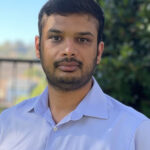
Uday Goteti |
Uday Goteti is a Postdoctoral scholar in Department of Physics at University of California, San Diego under the supervision of Prof. Robert Dynes. He is currently working on disordered superconducting circuits to develop understanding of information processing in neural networks and designing circuits for applications in Neuromorphic computing. He received a PhD in Electrical Engineering from Auburn University, Alabama in 2019. His research interests include novel devices and circuits for low-power and high-speed computing beyond von-Neumann architectures. Presentation title: Disordered superconducting loop networks for Neuromorphic computing |
